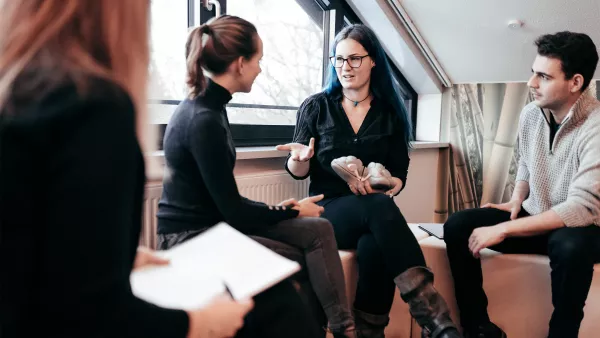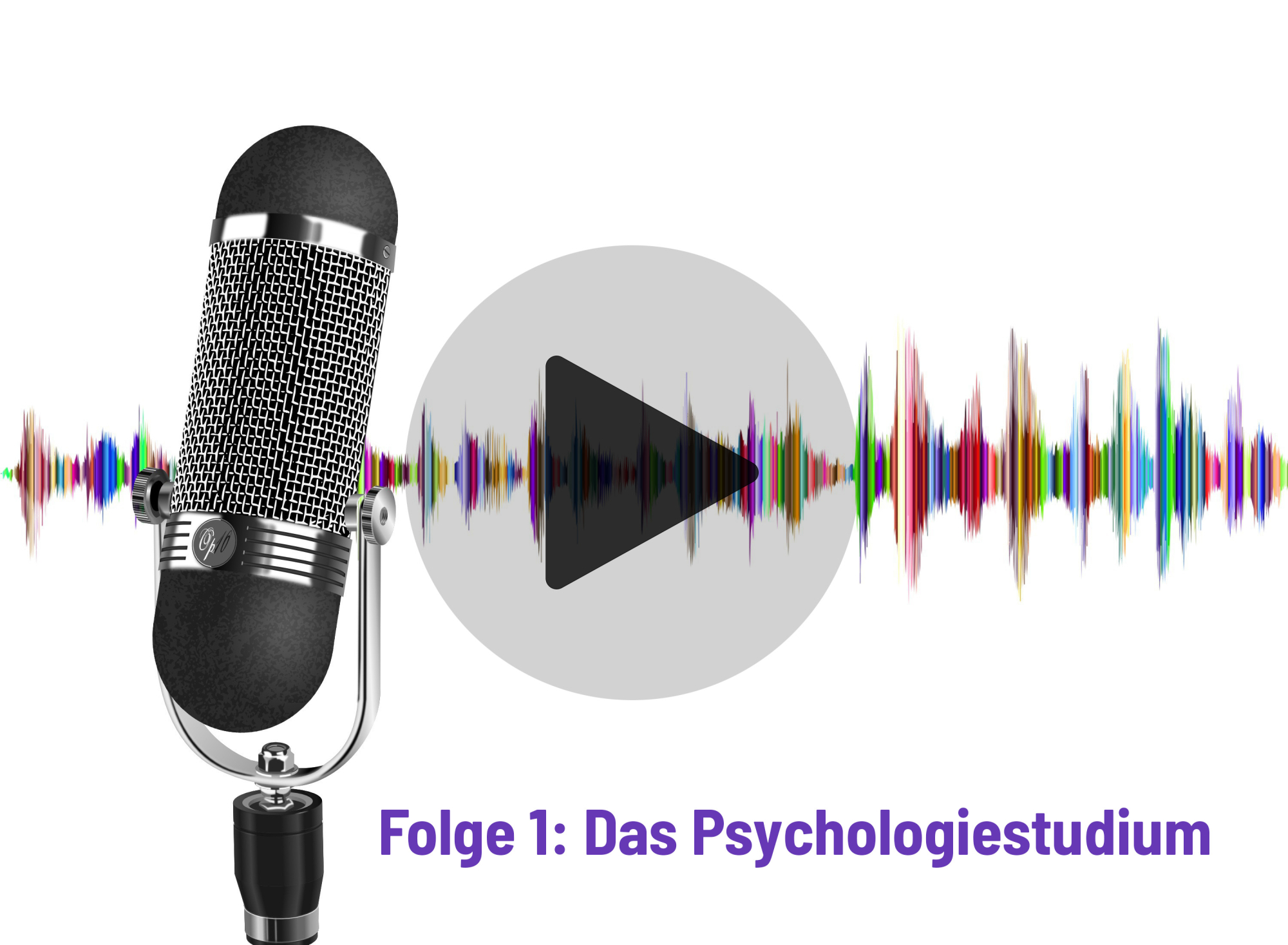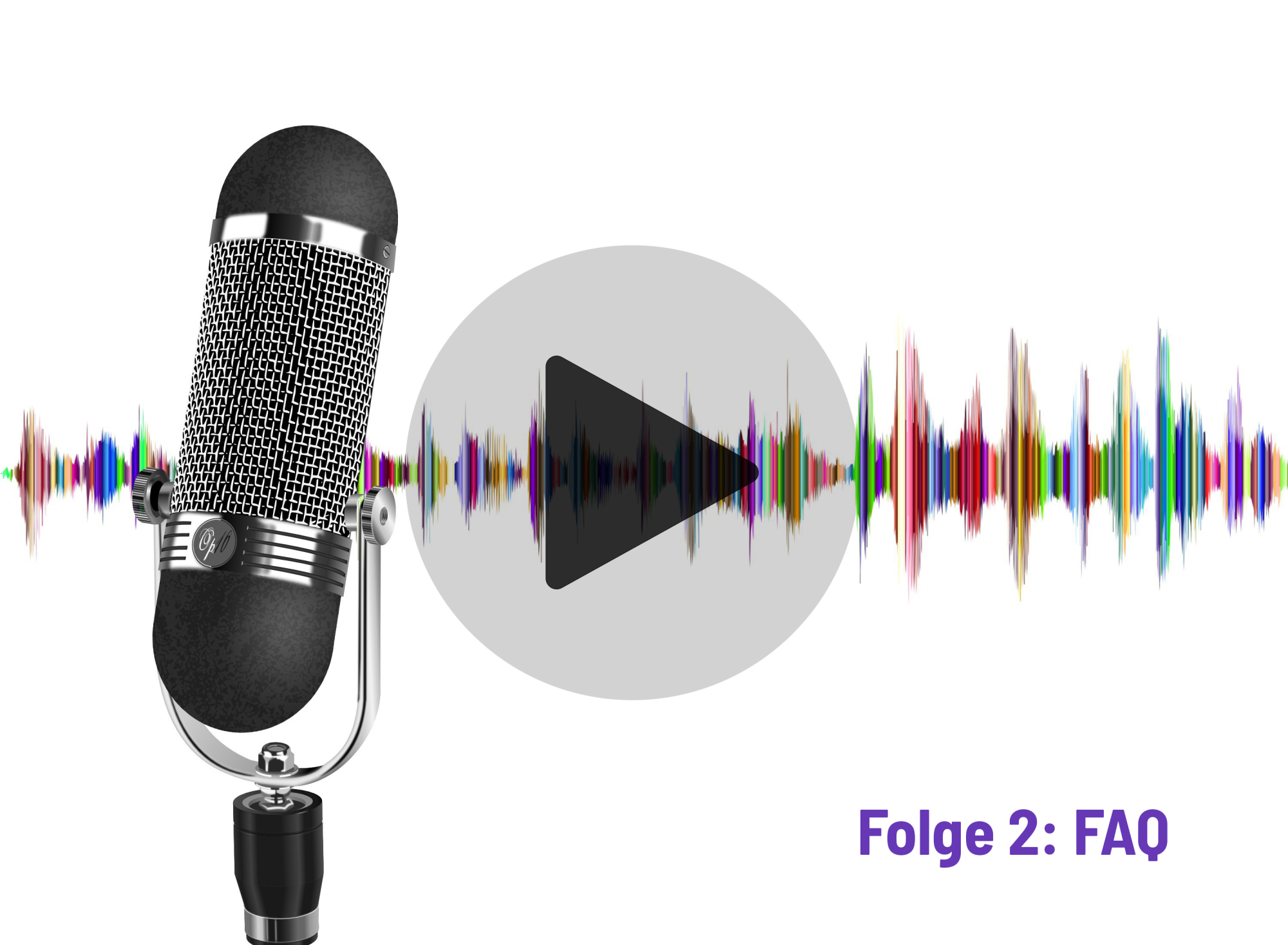At a glance
Dates
All events
Relevance of the study program
One focus of the Applied Psychology program is Clinical Psychology and Health Psychology, based on the social objectives (BRK, BTHG, SDGs, etc.) of participation/inclusion and diversity: Mental disorders, such as depression, are constantly on the rise and are already the second most common cause of incapacity to work and can also lead to a disability and thus a restriction of participation. At the same time, the waiting time for a therapy or rehabilitation place is unacceptably long, especially in rural areas. To prevent a mental disorder from developing in the first place, prevention and health promotion with regard to the mental health of the population is of particular importance.
Theoretical (theories) and practical (intervention options/therapies) psychological competencies, i.e. knowledge and approaches to explaining and changing human experience and behavior, are not only important in relation to health and illness, but also play a role in almost every field of activity or area of life: students in the Applied Psychology program, for example, acquire equally profound knowledge and competencies in the application fields of industrial psychology, business psychology, educational psychology, traffic psychology, ecological psychology, intercultural psychology, engineering psychology, etc.

Profession and prospects
The Professional Association of German Psychologists (bdp) provides detailed information about job opportunities in its brochure "Berufsbild Psychologie"(www.bdp-verband.de). Quote from the president of the bdp, Prof. Krämer: "The professional landscape is constantly changing. Even though in public psychologists are still often equated with psychological psychotherapists, these form only a part of the psychological profession. The psychological profession is multifaceted and increasingly differentiated. It is safe to predict that society's need for psychological services will continue to grow and that we can speak of a profession/professions with a future."
The bachelor's degree in psychology represents a general professional qualification and already enables graduates to work in psychology in the various professional fields of psychology.
In the field of clinical psychology, graduates can work under the responsibility of a licensed psychologist in the area of diagnostics and therapy in psychiatric acute and rehabilitation facilities. In the field of health psychology, job opportunities in the prevention of mental disorders are available in the public health sector, with companies in the context of workplace health promotion, in management consultancies or in educational institutions. Knowledge in ecological psychology (climate change) as well as intercultural psychology (integration experts) is increasingly in demand, for example, by political foundations or NGOs, district and municipal offices as well as internationally operating companies. In order to "take people along" in the digital transformation of society, the need for psychological expertise is also increasing in the area of digital technology and development (e.g. user experience).
Master's program
After the bachelor's degree, a relevant master's program can be taken up at a university of applied sciences or at a university. A so-called equivalency examination is required for transfer. The degree program in Applied Psychology at RWU is formally equivalent to the Bachelor's degree program in Psychology at all colleges or universities in Germany that have aligned their degree programs as of WiSe 20/21 according to the new Approbationsordnung für Psychologische Psychotherapeutinnen und Psychotherapeuten (to be inquired directly at the colleges/universities).
Only after completion of a master's degree program in psychology (Association of German Psychologists) can the protected professional title of "psychologist" be used.
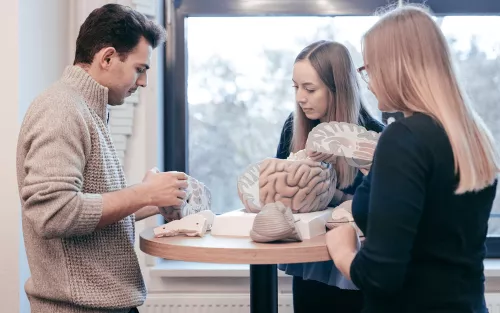
Study contents
The Bachelor's program in Applied Psychology leads to a Bachelor of Science degree. The program comprises 7 semesters (210 ECTS), with the 5th semester including practical study components at a practical institution recognized by the university, as well as a research internship. Basic subjects and methods (e.g. General Psychology, Quantitative Methods, etc.) are taught from the beginning in parallel with the application subjects of psychology (e.g. Clinical Psychology, Business Psychology, Educational Psychology, etc.) in order to accentuate the application reference. However, while in study part I (basic courses), which covers the 1st to 3rd semesters, the focus is on teaching professional competence (knowledge/understanding), in study part II instrumental, systemic and communicative competencies are taught in particular.
Change environmental behavior with the help of psychology
Part 1
Change environmental behavior with the help of psychology
Part 2
Downloads
- Alle Infos kompakt auf einen Blick
- Antrag auf Anerkennung von Studien- und Prüfungsleistungen sowie außerhochschulisch erworbenen Kompetenzen
Info
- Akkreditierungsbericht
- Akkreditierungsurkunde
Module reference book
- Für SPO ab WiSe23/24. Ältere Modulhandbücher sind im QM Portal abgelegt.
- Für SPO ab WiSe21/22. Ältere Modulhandbücher sind im QM Portal abgelegt.
- Für SPO ab WiSe21/22. Ältere Modulhandbücher sind im QM Portal abgelegt.
- Für SPO ab WiSe21/22. Ältere Modulhandbücher sind im QM Portal abgelegt.
- Für SPO ab WiSe20/21. Ältere Modulhandbücher sind im QM Portal abgelegt.
- Modulhandbuch mit temporären Änderungen SPO bis WiSe20/21
Study and examination rules and regulations
- §41 der Studien- und Prüfungsordnung für die Bachelorstudiengänge - Fassung vom 29. Juni 2023
- Studien- und Prüfungsordnung für die Bachelorstudiengänge mit Allgemeinem Teil - Diese Änderungssatzung tritt zum WiSe 2023/24 in Kraft.
- §41 der Studien- und Prüfungsordnung für die Bachelorstudiengänge - Fassung vom 01. Juli 2021
- §41 der Studien- und Prüfungsordnung für die Bachelorstudiengänge - Fassung vom 14. Mai 2020
- Studien- und Prüfungsordnung für die Bachelorstudiengänge - Diese Änderungssatzung tritt zum WiSe 2019-20 in Kraft
- Studien- und Prüfungsordnung für die Bachelorstudiengänge - Fassung vom 28. Juni 2018
- Satzung der Hochschule Ravensburg-Weingarten über die Regelungen zum Hochschulzulassungs- und auswahlverfahren für Bachelorstudiengänge vom 28. November 2024
Further information
Postgraduate courses

Applied Health Science
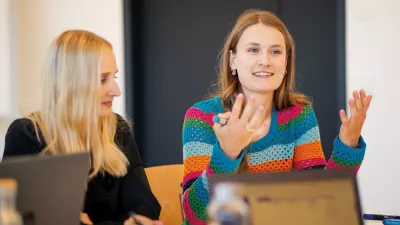
Social Work and Participation
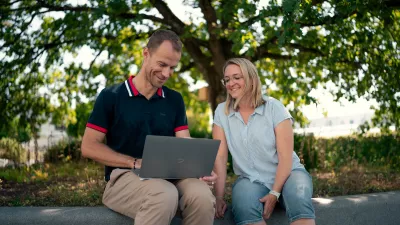
Social and Health Care Management
Curriculum
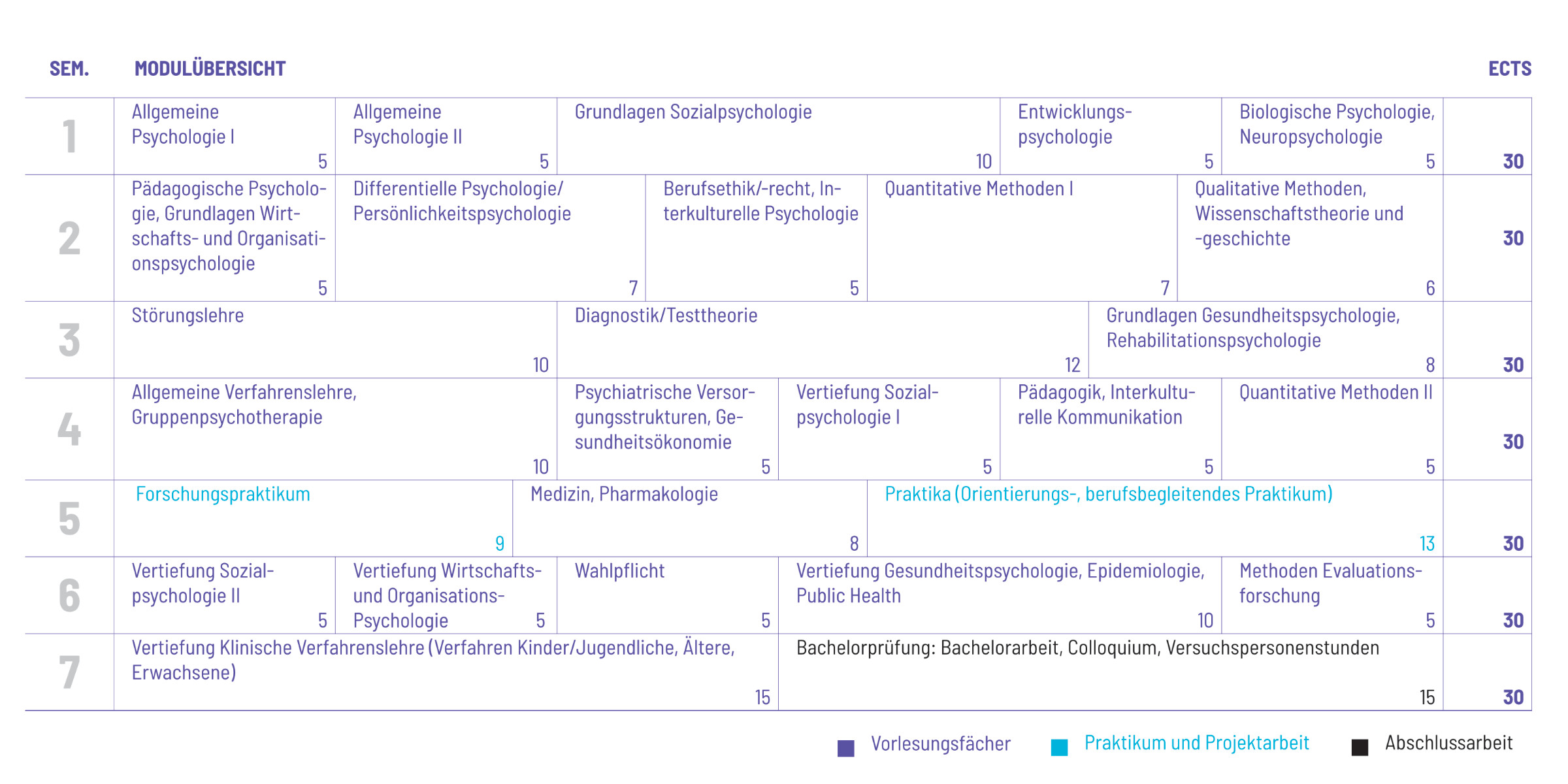
In terms of study structure and content, the Applied Psychology program does not differ from a psychology program at a university. This is essential in order to acquire a psychological way of thinking and seeing things, to understand relevant scientific studies from psychological research, but above all to ensure connectivity also for the master's degree in psychology at a university. This is an important difference to courses that teach psychology as an additional subject (e.g. business psychology). The reference to application (applied psychology) that a university of applied science aims to establish is implemented in particular through the teaching and learning formats, e.g. practical exercises, team achievements and portfolio examinations.
Basic subjects
General Psychology I
Cognitive functions of action control (perception, attention, memory, thinking, language and motor skills)
General Psychology II
Learning, emotion, motivation
Biological Psychology
Physiological and neurobiological foundations of experience and behavior
Developmental psychology
Lasting changes in human experience and behavior across the lifespan
Social psychology
Human experience and behavior in social contexts and the experience and behavior of groups
Differential psychology
Individual experience and behavior as distinct from the uniformity of human experience and behavior (see general psychology)
Methods
Qualitative and quantitative methods, test theory/diagnostics
Application subjects
Business and organizational psychology (in intercultural contexts)
Experience and behavior of people in organizations and in the economic field
Educational psychology (in intercultural contexts)
Experience and behavior in teaching and educational situations as well as socialization processes
Clinical psychology (treatment of mental disorders)
Disturbed experience and behavior
Health psych ology (prevention of mental disorders)
Health or illness behavior
The program imparts specialized knowledge, skills and methods for describing, analyzing and changing mental processes, including their biological basis and their social conditioning. Graduates understand the central psychological theories from the basic and applied subjects and are able to implement them in the various fields of practice. Various procedures and approaches (e.g. psychotherapeutic procedures, approaches to preventive measures, etc.) are available to them. They work in an evidence-based manner on the basis of research findings, which they can understand, evaluate and implement. In addition, they can develop and answer research questions themselves using quantitative and qualitative research methods or data analysis. In addition to social science research methods (e.g. experiments, questionnaire surveys) and the techniques of scientific work (e.g. presentation techniques, writing scientific texts, conducting interviews), graduates master the specific methods of psychology, especially psychological diagnostics/test theory. Graduates are also able to present and analyze complex problems in a scientifically reflective manner and to develop psychological solutions. A professional attitude has been established that enables graduates to make independent, professionally ethical professional assessments and to conduct a professional discourse, also in an interdisciplinary team. This attitude also includes the conviction that lifelong learning and interdisciplinary cooperation are of central importance.
Qualification goals (using the example of the applied subject of clinical psychology)
Students will be able to ...
know and understand (professional competence)
... characterize psychiatric disorders (symptoms, diagnosis/classification, development/etiology, therapy).
... summarize, discuss and explain relevant scientific studies.
Ability (instrumental, systemic, communicative competence)
... define psychopathological symptoms according to ICD-10 (international classification guideline of the WHO) and process clinical cases (casuistics).
... independently carry out group psychotherapeutic procedures in the inpatient setting.
... compare and criticize the current state of research, argue on the basis of given scientific criteria and evaluate findings/theories.
Attitudes/Behavior
The students feel committed to the fundamental values - especially self-determination and respect - in dealing with patients.
Admission
Application for the winter semester
Applied Psychology offers 34 study places in the winter semester
Application deadline for the winter semester is July 15
The deadlines are cut-off dates, which means that your application documents must be received by this date in order to be considered for the allocation of study places.
The start of lectures for the winter semester is at the beginning of October.
You will find the exact date in the menu item Dates.
Apply now
Who receives a study place?
The applicants with the best overall grades will be admitted.
In the winter semester 2022/23, all those who had an overall grade of 1.6 or better, as well as some applicants with an overall grade of 1.7, were admitted. Those who had at least 7 semesters of waiting time and an HZB grade better than 2.6 were also admitted.
Selection procedure - how is the overall grade calculated?
At RWU, the admission procedure for this degree program is governed by the Admission and Selection Statutes for Bachelor's programs are applied and carried out on the basis of the application documents. The preparation of a proposal list or ranking list is explained below: from the application documents, the applicant's position on a ranking list is determined according to the following procedure: Calculation of a weighted overall grade according to the formula
[(average grade of university entrance qualification)+(grades German, mathematics * 2 and continued modern foreign language)/4] / 2
If there are more applicants than places, 90% of the places are awarded by the selection procedure (best overall grade) and 10% of the places are awarded by waiting period.
Improvements of the overall grade
This overall grade can improve if one or more of the following qualifications are proven:
- A completed vocational training from the recognized occupational groups according to. Admission and selection statutes: 0,2
- Work experience in the training occupation of at least 1 year: 0.1. This bonus is limited to 0.2.
Extracurricular achievements, pract. Extracurricular achievements, practical activities and recognized previous experience: 0.2 per qualification, max. 2 qualifications can be credited:
- Voluntary social year (min. 11 months)
- Federal voluntary service (min. 11 months)
- Stay abroad in the service of an NGO or on behalf of the state (min. 6 months)
Move-up procedure
Prospective students often apply to several universities and study programs. As a result, study places regularly become vacant again because an applicant decides to take up another study place. These vacant places are then awarded to those who did not make it in the first place. Places are again awarded according to the ranking list, i.e. first to those with the best overall grade.
Further information about the application and the allocation of study places can be found in the Admissions Office.
Semester fee
Every semester , a semester fee is due for all students upon enrollment or re-registration. This fee is charged at a similar rate by all universities in Germany.
Composition and amount of the fee
Fees for international students and for second degree studies
In Baden-Württemberg, there has been a tuition fee for international students (non-EU citizens) and a second-study fee since the winter semester 2017/2018. Thus, in some cases, a tuition fee must be paid in addition to the semester fee.
Prior to enrollment, applicants from non-EU countries or applicants for a second degree will receive a form to assess whether a tuition fee obligation actually exists.
The amounts and detailed information can be found under Finances.
News
News of this degree program
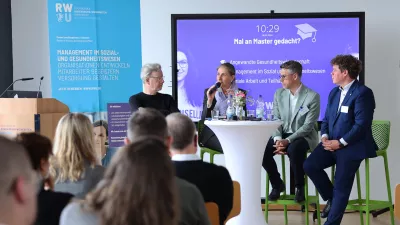
Social and Health Care Management
Weiterdenkertagung24: Transformation in the social and health care sector
Numerous representatives from the region discuss current opportunities and challenges in the social and health care sector. / Socio-ecological and digital transformation are the focus.
Internship Office
Internship Office Applied Psychology
Building A, Room A121 (contact person Mrs. Kluzik)
Contact details:
RWU University of Applied Sciences Ravensburg-Weingarten
University of Applied Sciences
Practice Office Applied Psychology
Mrs. Kluzik
P.O. Box 30 22
D 88216 Weingarten
Phone: +49-751-501-9449
E-mail: elke.kluzik@rwu.de
Podcast
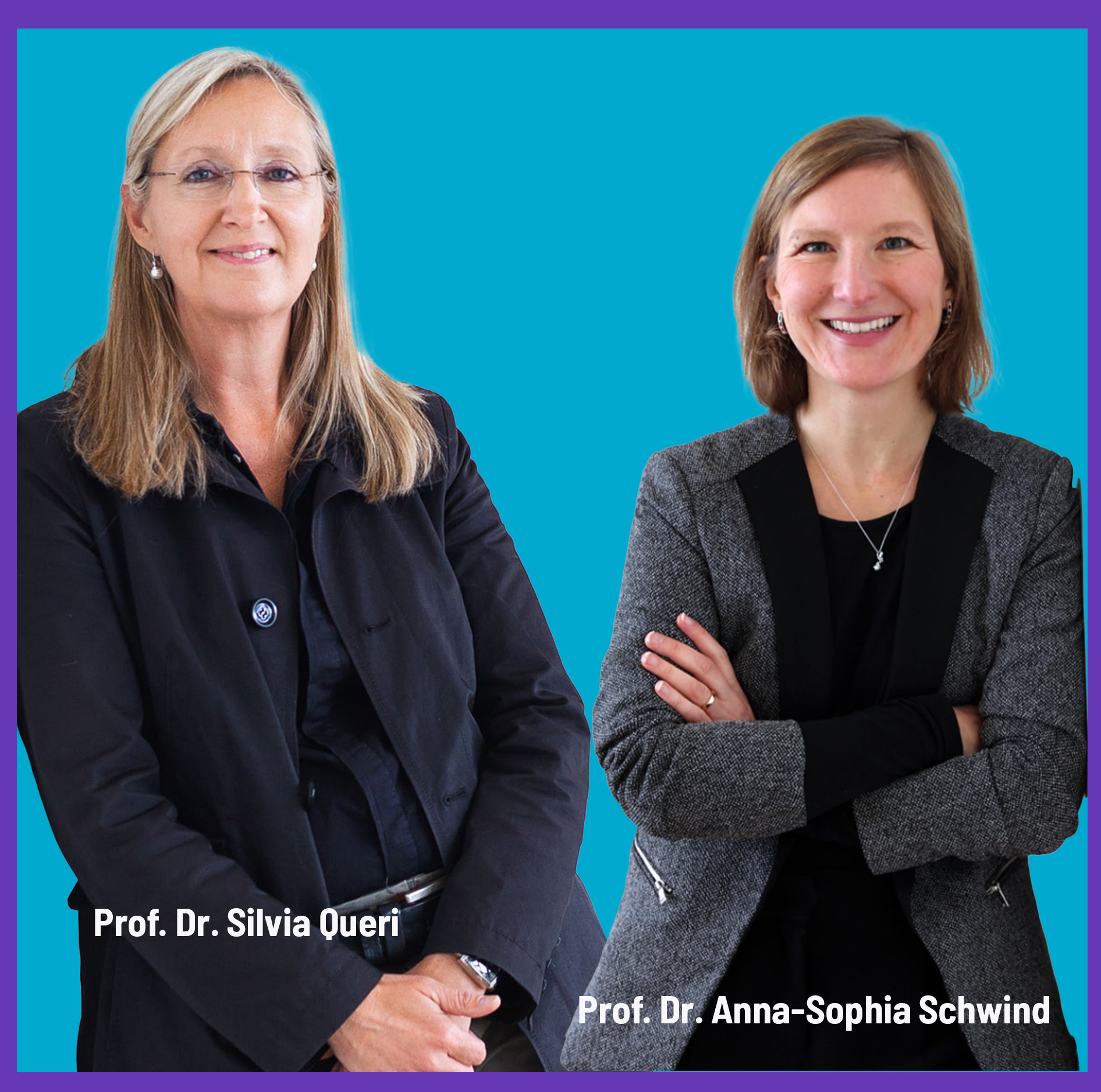 Wie ist es wirklich Psychologie zu studieren?
Wie ist es wirklich Psychologie zu studieren?
Was sind die Herausforderungen?
Können Psycholog:innen Gedanken lesen?
Warum Angewandte Psychologie an der RWU studieren?
Diese und viele weitere Fragen beantworten die Professorinnen Dr. Silvia Queri und Dr. Anna-Sophia Schwind in ihrem neuen Podcast von und mit der Journalistin Inga Wolter.
Auch Studierende kommen zu Wort und schildern ihre Erfahrungen und Erlebnisse.
Hören Sie rein!
Podcast des Studiengangs Angewandte Psychologie (B.Sc.)
In der ersten Episode des Podcasts stehen verschiedene Themen rund um das Psychologiestudium im Fokus. Die Teilnehmenden diskutieren die Beweggründe für die Wahl des Psychologiestudiums, beleuchten die Besonderheiten des Studienortes Weingarten und gewähren Einblicke in die faszinierenden Inhalte des Studiums. Außerdem klären sie gängige Mythen der Psychologie auf, um Studieninteressierten einen realistischen Einblick in die Welt der angewandten Psychologie zu geben.
Weiterführende Informationen:
https://www.bdp-verband.de/profession/studium-und-weiterbildung/anerkannte-studiengaenge
https://www.dgps.de/psychologie-studieren/berufsfelder
https://www.rwu.de/studieren/studiengaenge/angewandte-psychologie#studieninhalte
Die zweite Podcast-Episode ist ganz der Interaktion mit Studienbewerber:innen gewidmet. Professorin Queri beantwortet dabei häufig gestellte Fragen (FAQs) angehender Studierender. Diese praxisorientierte Herangehensweise ermöglicht es, direkt auf die individuellen Bedürfnisse und Unsicherheiten potenzieller Studierender einzugehen und ihnen wertvolle Einblicke in den Studienalltag zu vermitteln.
Inhaltsverzeichnis:
01,17: Wie unterscheidet sich die Angewandte Psychologie vom reinen Psychologiestudiengang?
04,38: Was lerne ich in der Angewandten Psychologie?
13,34: Was sollte ich zur Bewerbung für den Studiengang wissen?
13,49: Welche Fähigkeiten sollte ich für die Psychologie mitbringen?
17,13: Welche formalen Voraussetzungen gibt es?
18,50: Wie kann ich meine Chancen bei der Bewerbung für den Studiengang erhöhen?
21,07: Kann ich mir Modulen, die ich an anderen Hochschule erworben habe, anrechnen lassen?
23,50: Kann ich mir Module, die ich an einer Uni im Ausland erworben habe, anrechnen lassen?
24,51: Kann ich mir Praktika, die ich vor dem Studium gemacht habe, anrechnen lassen?
27,38 min: Nach dem Bachelorabschluss: Kann ich mich mit dem Bachelor Angewandte Psychologie an jeder Uni bewerben?
30,32 min: Was hat es mit der Äquivalenzprüfung auf sich?
32,36 min: Kann ich mit dem RWU-Abschluss einen Master in Psychotherapie machen?
36,20 min: Kann ich mit dem Bachelor Angewandte Psychologie in die therapeutische und nicht-therapeutische Richtung gehen?
38,04 min: Wird es in absehbarer Zeit einen Master Angewandte Psychologie an der RWU geben?
Weiterführende Informationen:
Neue SPO Angewandte Psychologie B.Sc. gültig ab WiSe23/24
Modulhandbuch Angewandte Psychologie B.Sc. für das SoSe24
Quelle (Musik): Minimal Inspiring/ComaStudio/Pixabay
Image galleries
Photo galleries of this degree program
Contact & People
General contact details
| Opening hours | By appointment |
|---|---|
| Phone | |
| angewandte-psychologie@rwu.de | |
| Room | A 121 |
| On campus |
Building A
Leibnizstr. 10
88250 Weingarten |
| Postal address |
RWU Hochschule Ravensburg-Weingarten University of Applied Sciences Applied Psychology P.O. Box 30 22
88216 Weingarten Germany |
Program Management & Academic Advising

Program Coordination & Internship Office
Professors

- Gebäude A
- Room A111


- Gebäude A
- Room A 112
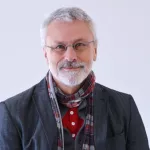
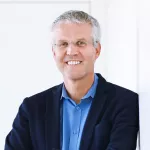
Employees & Staff
Dean's Office
Contact person for sexual harassment, safety officer, senator and member of the QM working group
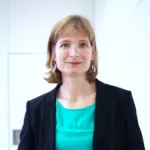
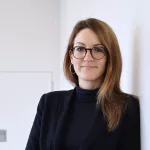

Admission Office
Examination Office

